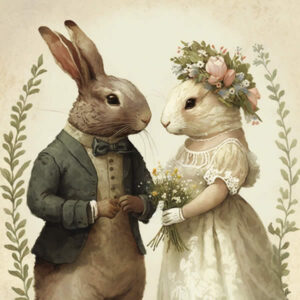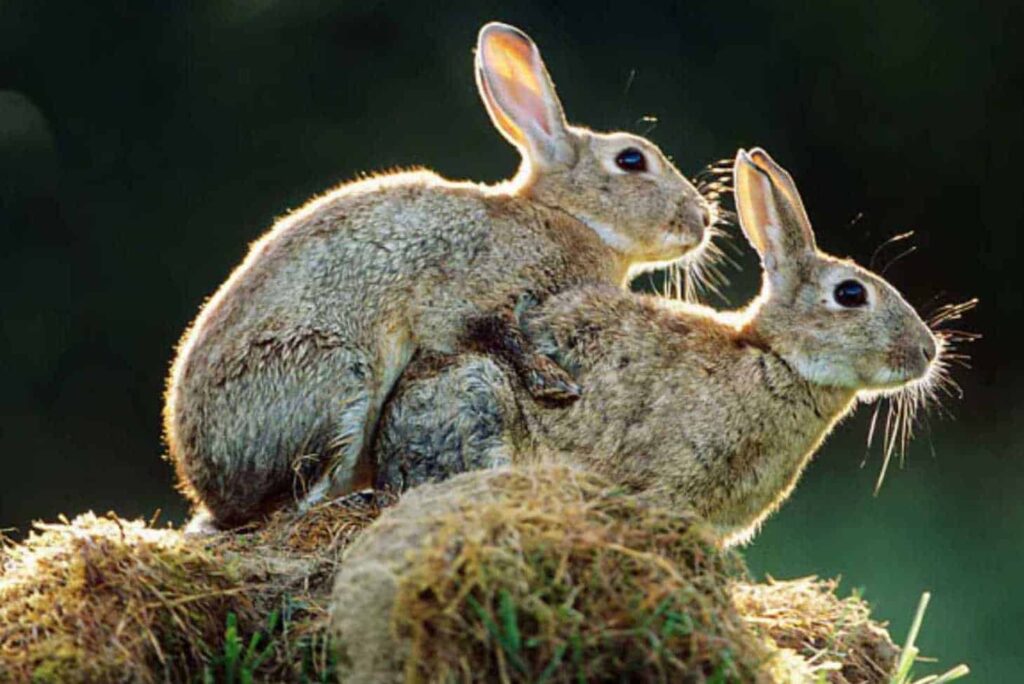Introduction to Rabbit Mating Habits
Rabbits are often seen as symbols of love and affection, hopping through fields in pairs. But when it comes to their mating habits, do these furry companions truly commit for life? Understanding the nuances of rabbit relationships can shed light on their behavior and help us better care for our beloved pets. Join us as we explore the intriguing world of rabbit mating habits and uncover whether rabbits mate for life or if they have a more varied approach to partnerships. Your curiosity about these charming creatures is just the beginning!
Do Rabbits Mate for Life?

Rabbits are often seen as symbols of love and companionship. Many people wonder if these furry creatures form lifelong bonds with their partners.
In the wild, rabbits don’t typically mate for life. They can be quite territorial and may have multiple mates throughout their lives. This behavior is driven by survival instincts rather than emotional attachments.
However, domesticated rabbits tend to behave differently. When paired together from a young age or introduced properly, they can establish strong bonds that resemble monogamy.
These connections might not last forever due to various factors like health issues or changes in environment. Stressful situations can lead them to seek new companions or even become aggressive towards each other.
Understanding rabbit relationships requires observation and patience, as every pair has its unique dynamics that evolve over time.
Factors That Influence Rabbit Mating Behavior
Several factors shape rabbit mating behavior, creating a complex social dynamic among these furry creatures. One significant aspect is the presence of hormones. When female rabbits enter their breeding cycle, they release pheromones that signal readiness to mate. Male rabbits are highly responsive to these scents.
Social structure plays an essential role as well. In wild settings, dominance hierarchies can dictate which males get access to females for breeding. Rabbits often establish bonds within their groups, impacting choices in mates.
Environmental conditions also matter greatly. Factors like space availability and safety from predators influence how and when rabbits choose partners. Stressful environments might inhibit mating behaviors altogether.
Additionally, individual personalities can affect compatibility between potential mates. Just like humans, some rabbits strike up friendships while others may prefer solitude or exhibit aggressive tendencies towards certain individuals.
The Importance of Choosing the Right Partner

Choosing the right partner for your rabbits is crucial. Just like humans, they thrive in a compatible environment. A good match can enhance their happiness and well-being.
Rabbits are social creatures. They need companionship to feel secure and content. When selecting a partner, consider personality traits and temperaments that align well.
Introduce them slowly to gauge compatibility. Observe their interactions closely. Signs of affection include grooming each other or cuddling together.
Additionally, age matters. Pairing an older rabbit with a younger one may create challenges due to energy levels or playfulness differences.
Remember, the bond between rabbits is built over time through trust and understanding. The right partner will complement your rabbit’s lifestyle while fostering development in both individuals.
Monogamy vs Polygamy in Rabbits
Rabbits display a fascinating range of mating behaviors, often leading to questions about monogamy and polygamy. While many believe rabbits are strictly monogamous, the reality is more complex.
In natural settings, some rabbit species form strong bonds with one partner. These pairs may show affectionate behaviors toward each other and establish a shared territory. This bond can enhance their chances of raising healthy offspring together.
On the other hand, in environments where multiple partners are available, rabbits might indulge in polygamous relationships. Males often seek out numerous females during breeding seasons to maximize their genetic contribution.
This variability allows for adaptability in their reproductive strategies based on environmental conditions and social structures. Understanding these dynamics offers deeper insights into rabbit behavior beyond mere companionship.
How to Tell if Your Rabbits Are Mating for Life
Observing your rabbits can reveal a lot about their bond. If they groom each other frequently, that’s a strong sign of affection. Grooming helps strengthen social connections in the rabbit world.
Another indicator is when they snuggle up together. Rabbits that are comfortable with one another often seek warmth and closeness, indicating a deeper relationship.
Watch for playful behavior too. Binkies and gentle nipping can show joy and comfort, suggesting they enjoy each other’s company.
Also, consider their reaction to separation. If they’re distressed when apart or exhibit signs of anxiety, it’s likely they share a strong emotional connection.
Look out for nesting behaviors. Female rabbits preparing nests may be signaling readiness to settle down with their mate long-term. These actions all contribute to understanding whether your rabbits might be mating for life.
Conclusion: Understanding Rabbit Mating Habits
Understanding rabbit mating habits offers a fascinating glimpse into the social structures of these adorable creatures. While many people wonder if rabbits mate for life, the reality is more nuanced.
Rabbits are known to form strong bonds, especially when they live together in harmony. They can exhibit behaviors that suggest loyalty and attachment, but their mating patterns may not strictly adhere to lifelong partnerships. Factors such as environment, individual personalities, and even breed characteristics all play a role in how rabbits interact with one another.
Choosing compatible partners is essential for successful bonding among rabbits. A good match can lead to companionship that resembles monogamy while others might prefer more varied relationships over time. Monitoring your rabbits’ behavior will provide insights into whether they have indeed formed a lasting bond or simply enjoy each other’s company temporarily.
Understanding these dynamics helps pet owners create better living conditions for their furry friends and appreciate the complexity of rabbit relationships beyond just breeding habits.


